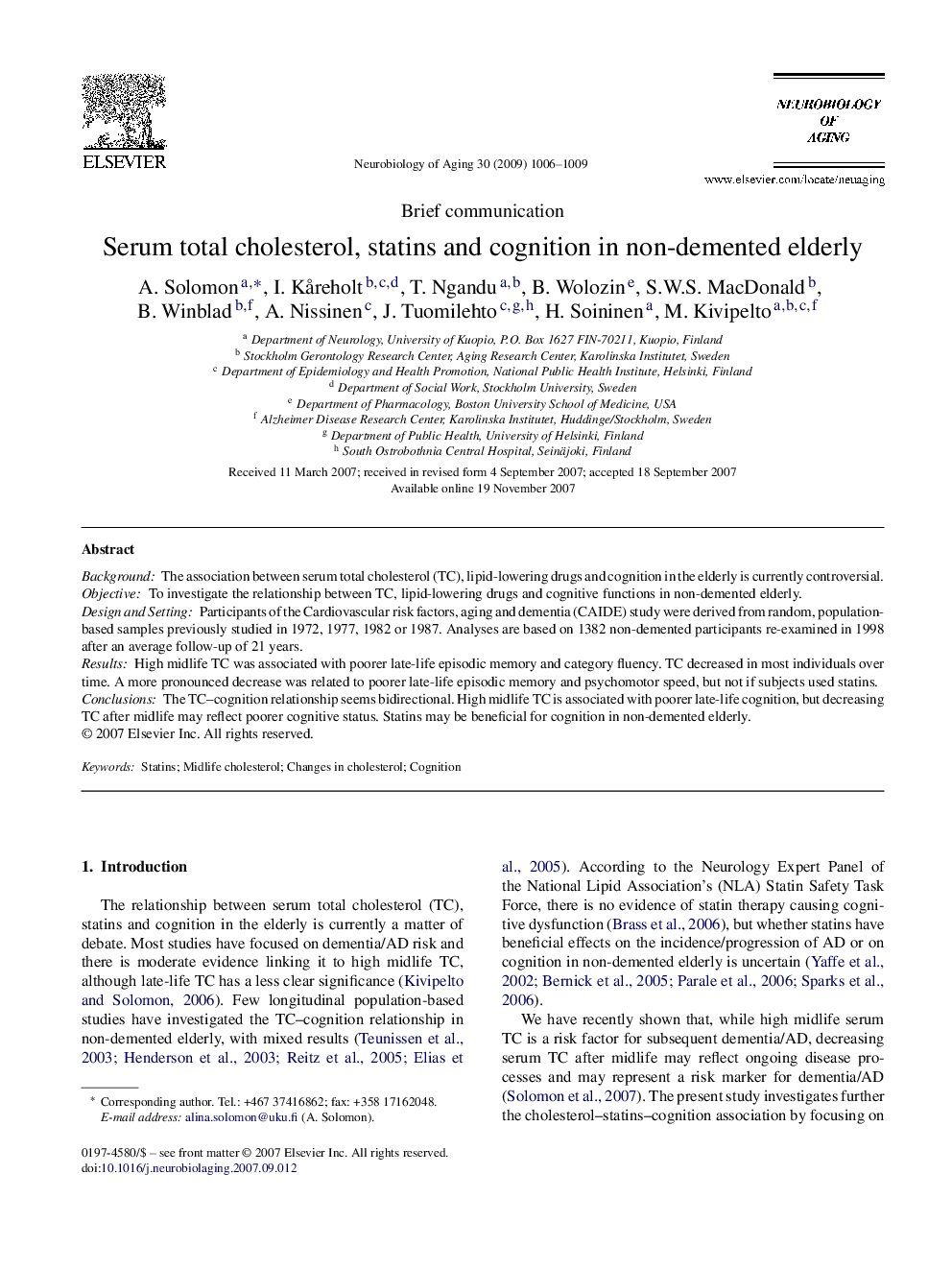| کد مقاله | کد نشریه | سال انتشار | مقاله انگلیسی | نسخه تمام متن |
|---|---|---|---|---|
| 329494 | 1433633 | 2009 | 4 صفحه PDF | دانلود رایگان |

BackgroundThe association between serum total cholesterol (TC), lipid-lowering drugs and cognition in the elderly is currently controversial.ObjectiveTo investigate the relationship between TC, lipid-lowering drugs and cognitive functions in non-demented elderly.Design and SettingParticipants of the Cardiovascular risk factors, aging and dementia (CAIDE) study were derived from random, population-based samples previously studied in 1972, 1977, 1982 or 1987. Analyses are based on 1382 non-demented participants re-examined in 1998 after an average follow-up of 21 years.ResultsHigh midlife TC was associated with poorer late-life episodic memory and category fluency. TC decreased in most individuals over time. A more pronounced decrease was related to poorer late-life episodic memory and psychomotor speed, but not if subjects used statins.ConclusionsThe TC–cognition relationship seems bidirectional. High midlife TC is associated with poorer late-life cognition, but decreasing TC after midlife may reflect poorer cognitive status. Statins may be beneficial for cognition in non-demented elderly.
Journal: Neurobiology of Aging - Volume 30, Issue 6, June 2009, Pages 1006–1009